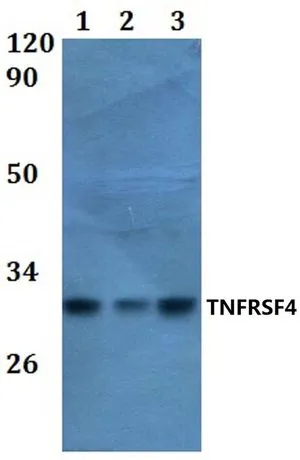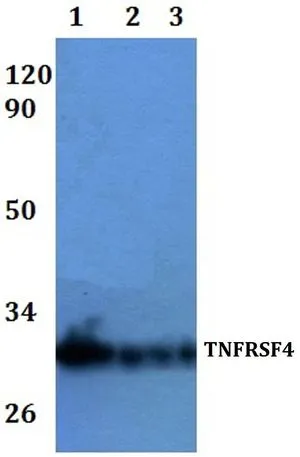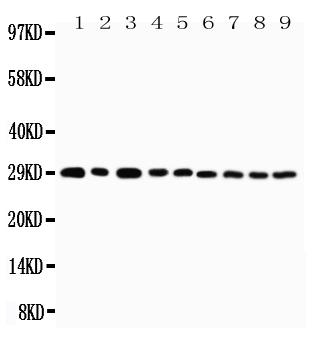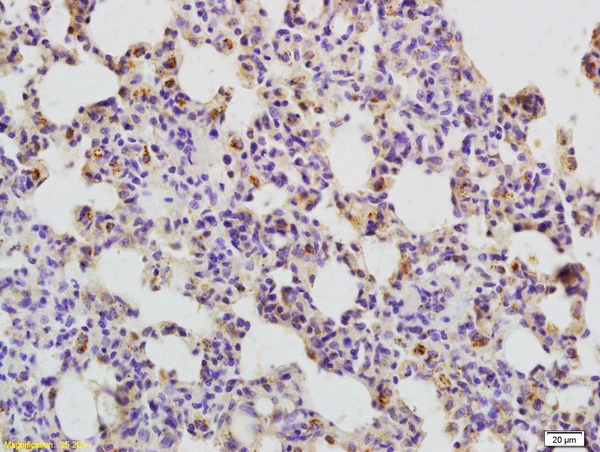
WB analysis of various samples using GTX66795 CD134 antibody. Lane1 : HEK293T whole cell lysate Lane2 : RAW264.7 whole cell lysate Lane3 : H9C2 whole cell lysate Dilution : 1:500
CD134 antibody
GTX66795
ApplicationsWestern Blot
Product group Antibodies
ReactivityHuman, Mouse, Rat
TargetTNFRSF4
Overview
- SupplierGeneTex
- Product NameCD134 antibody
- Delivery Days Customer9
- Application Supplier NoteWB: 1:500-1:1000. *Optimal dilutions/concentrations should be determined by the researcher.Not tested in other applications.
- ApplicationsWestern Blot
- CertificationResearch Use Only
- ClonalityPolyclonal
- Concentration1 mg/ml
- ConjugateUnconjugated
- Gene ID7293
- Target nameTNFRSF4
- Target descriptionTNF receptor superfamily member 4
- Target synonymsACT35, CD134, IMD16, OX40, TXGP1L, tumor necrosis factor receptor superfamily member 4, ACT35 antigen, ATC35 antigen, CD134 antigen, OX40 antigen, OX40 cell surface antigen, OX40 homologue, OX40L receptor, TAX transcriptionally-activated glycoprotein 1 receptor, lymphoid activation antigene ACT35, tax-transcriptionally activated glycoprotein 1 receptor
- HostRabbit
- IsotypeIgG
- Protein IDP43489
- Protein NameTumor necrosis factor receptor superfamily member 4
- Scientific DescriptionThe protein encoded by this gene is a member of the TNF-receptor superfamily. This receptor has been shown to activate NF-kappaB through its interaction with adaptor proteins TRAF2 and TRAF5. Knockout studies in mice suggested that this receptor promotes the expression of apoptosis inhibitors BCL2 and BCL2lL1/BCL2-XL, and thus suppresses apoptosis. The knockout studies also suggested the roles of this receptor in CD4+ T cell response, as well as in T cell-dependent B cell proliferation and differentiation. [provided by RefSeq, Jul 2008]
- ReactivityHuman, Mouse, Rat
- Storage Instruction-20°C or -80°C,2°C to 8°C
- UNSPSC41116161









